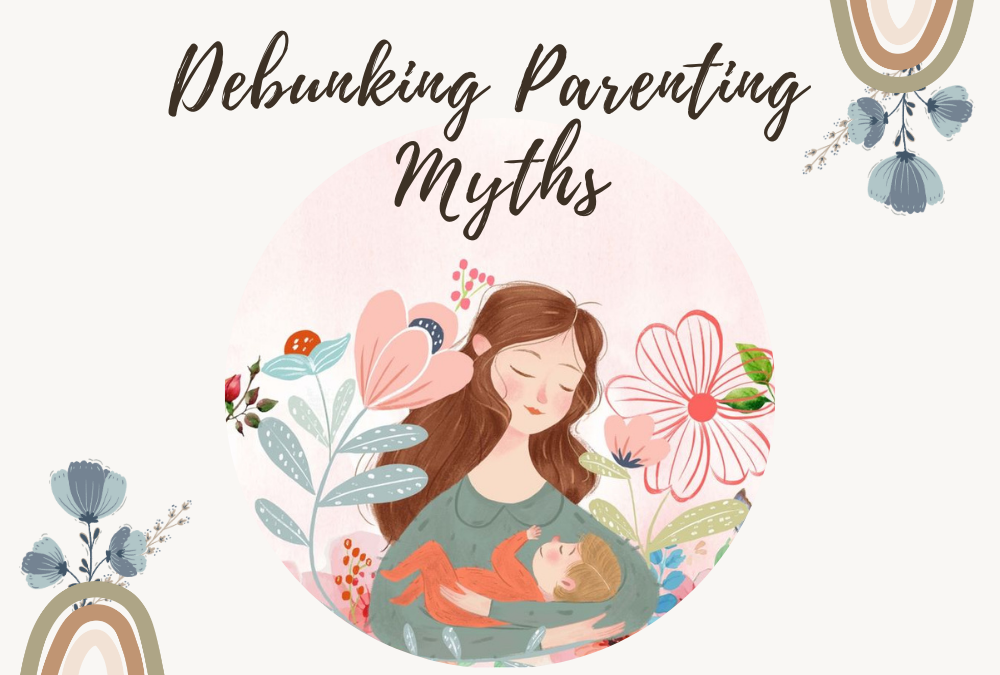INTRODUCTION:
Parenthood is a rewarding journey filled with joy, challenges, and a multitude of advice from well-meaning friends, family, and even strangers. However, not all the guidance you receive is based on reality. In this blog, we’ll explore eight common myths about parenting and unveil the actual facts that can help you navigate the complex world of raising children.
Myth 1:
“Good Parents Have It All Figured Out”
Fact:
Parenting is a continuous learning experience. No one has all the answers, and it’s okay not to have everything figured out. Every child is unique, and what works for one may not work for another. Embrace the journey of learning and adapting to your child’s needs.
Myth 2:
“Quality Time Is Enough”
Fact:
While quality time is crucial, quantity matters too. Children thrive on consistency and routine. Spending regular, everyday moments together fosters a strong connection and contributes significantly to a child’s sense of security.
Myth 3:
“Children Should Be Happy All the Time”
Fact:
It’s unrealistic to expect constant happiness from children. Like adults, they experience a range of emotions. Encourage open communication about feelings, teach coping mechanisms, and help them understand that it’s okay not to be okay sometimes.
Myth 4:
“Good Parents Never Get Frustrated or Angry”
Fact:
Parenting is challenging, and frustration is a natural part of the journey. It’s crucial to acknowledge and manage your emotions constructively. Model healthy ways to cope with stress, teaching your child valuable emotional intelligence skills.
Myth 5:
“Strict Parenting Equals Well-Behaved Kids”
Fact:
Striking a balance between discipline and warmth is more effective than strictness. Children need guidance, boundaries, and understanding. Authoritative parenting, which combines rules with empathy, tends to foster a healthier parent-child relationship.
Myth 6:
“Screen Time Is Always Harmful”
Fact:
While excessive screen time can be detrimental, not all screen time is created equal. Educational content and age-appropriate games can be beneficial. The key is moderation and ensuring that screen time doesn’t replace crucial activities like outdoor play and face-to-face interactions.
Myth 7:
“Parenting Gets Easier as Children Grow Older”
Fact:
Parenting evolves but doesn’t necessarily get easier. Each developmental stage brings new challenges. Being adaptable and maintaining a strong support system can help you navigate the complexities of parenting at every age.
Myth 8:
“Good Parents Put Their Children First Always”
Fact:
Self-care is essential for effective parenting. Taking care of your physical and mental well-being enables you to be a more present and patient parent. Remember, it’s okay to prioritize your needs at times.
Conclusion:
Parenting is a dynamic and individualized journey, and dispelling these common myths can help you approach it with a more realistic perspective. Embrace the imperfections, celebrate the small victories, and cherish the unique bond you share with your child. As you navigate the world of parenting, remember that there’s no one-size-fits-all approach, and the most important thing is the love and support you provide.
If you’re hungry for more insights and discussions on parenting, don’t miss out on our podcast series, “Parenting Realities Unveiled.” Tune in for in-depth conversations with experts and real-life stories that tackle the challenges and triumphs of parenthood.
Subscribe now on your favorite podcast platform and join our community of parents navigating the beautiful and sometimes messy world of raising kids. Remember, you’re not alone in this journey!

